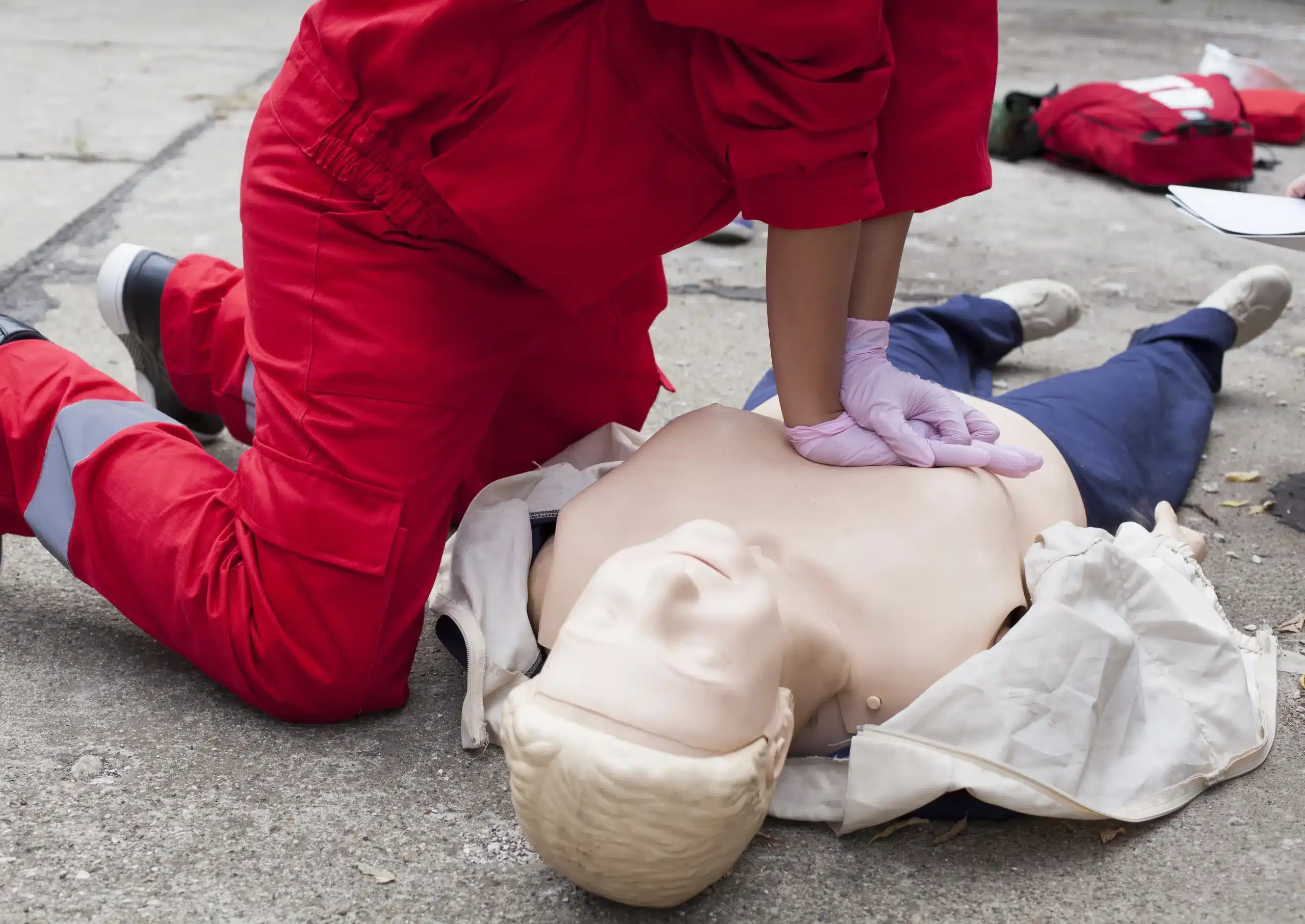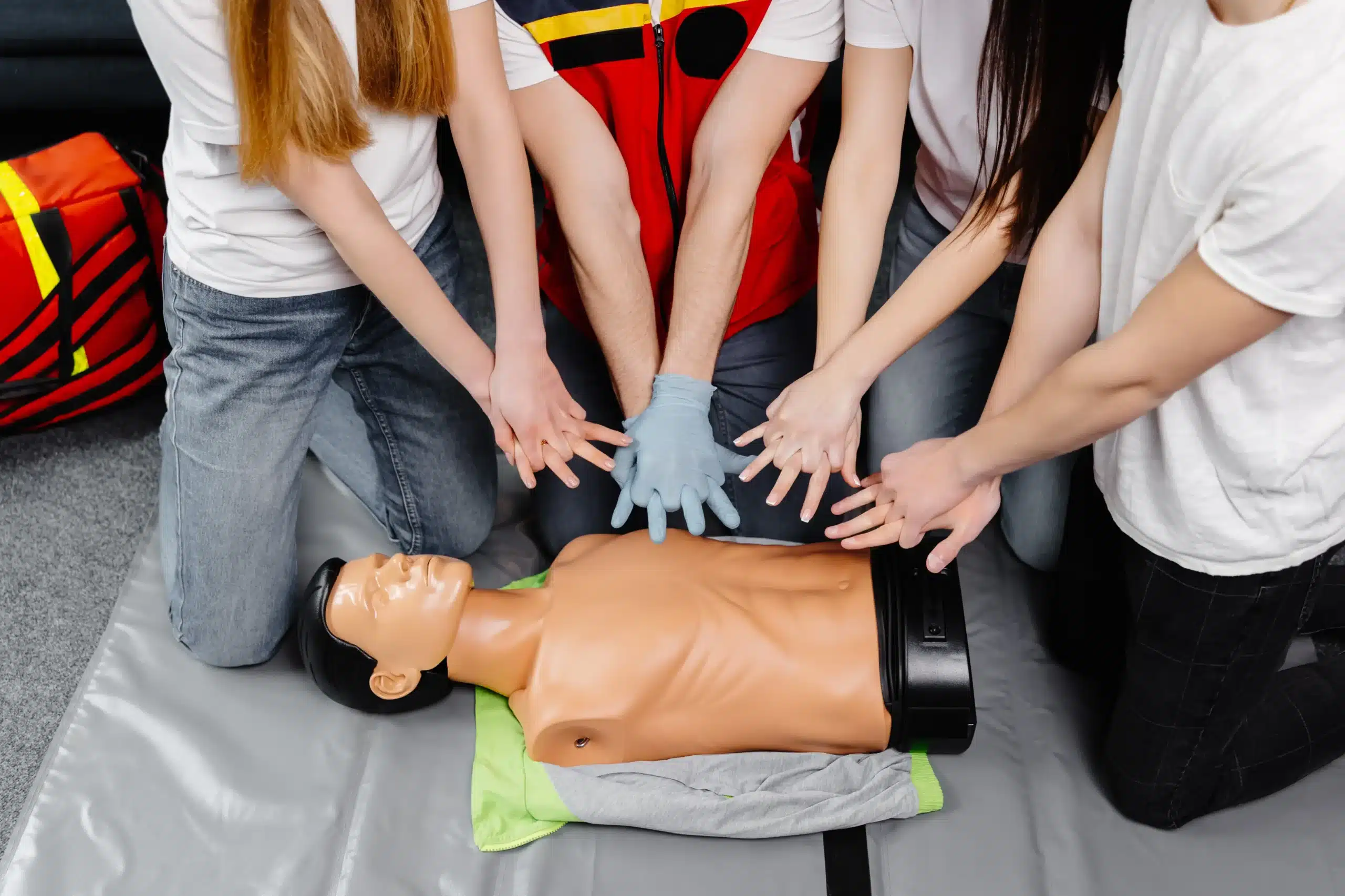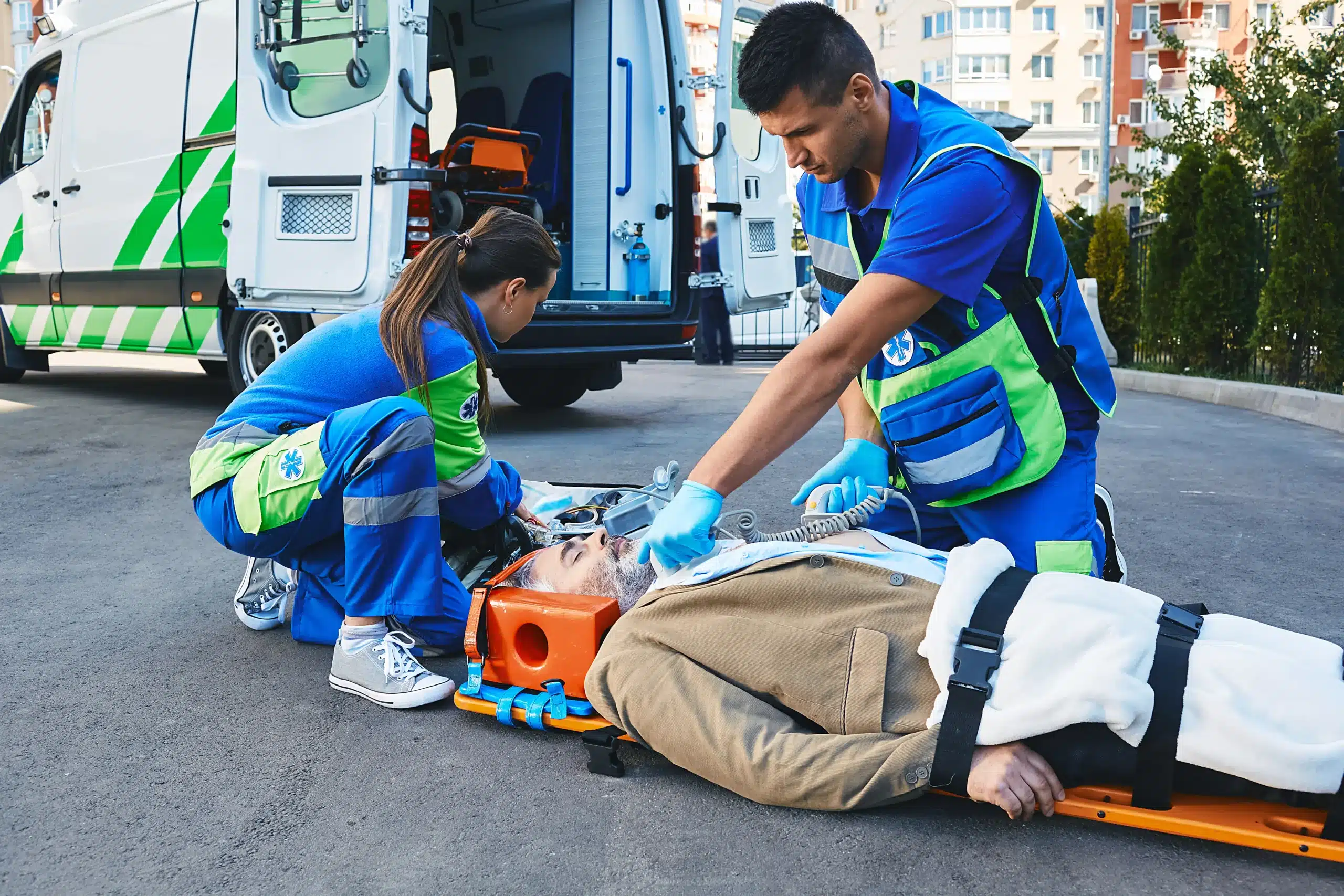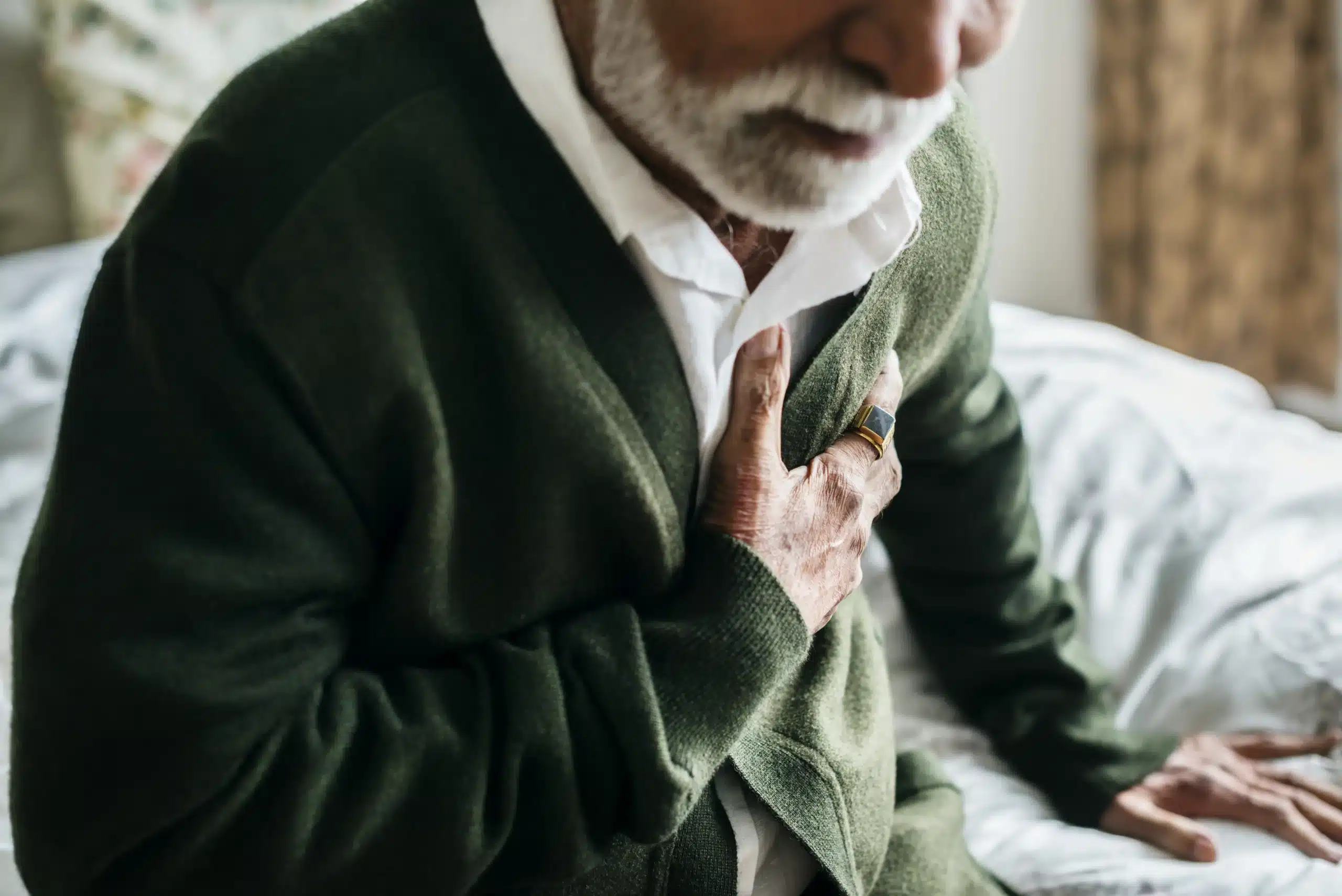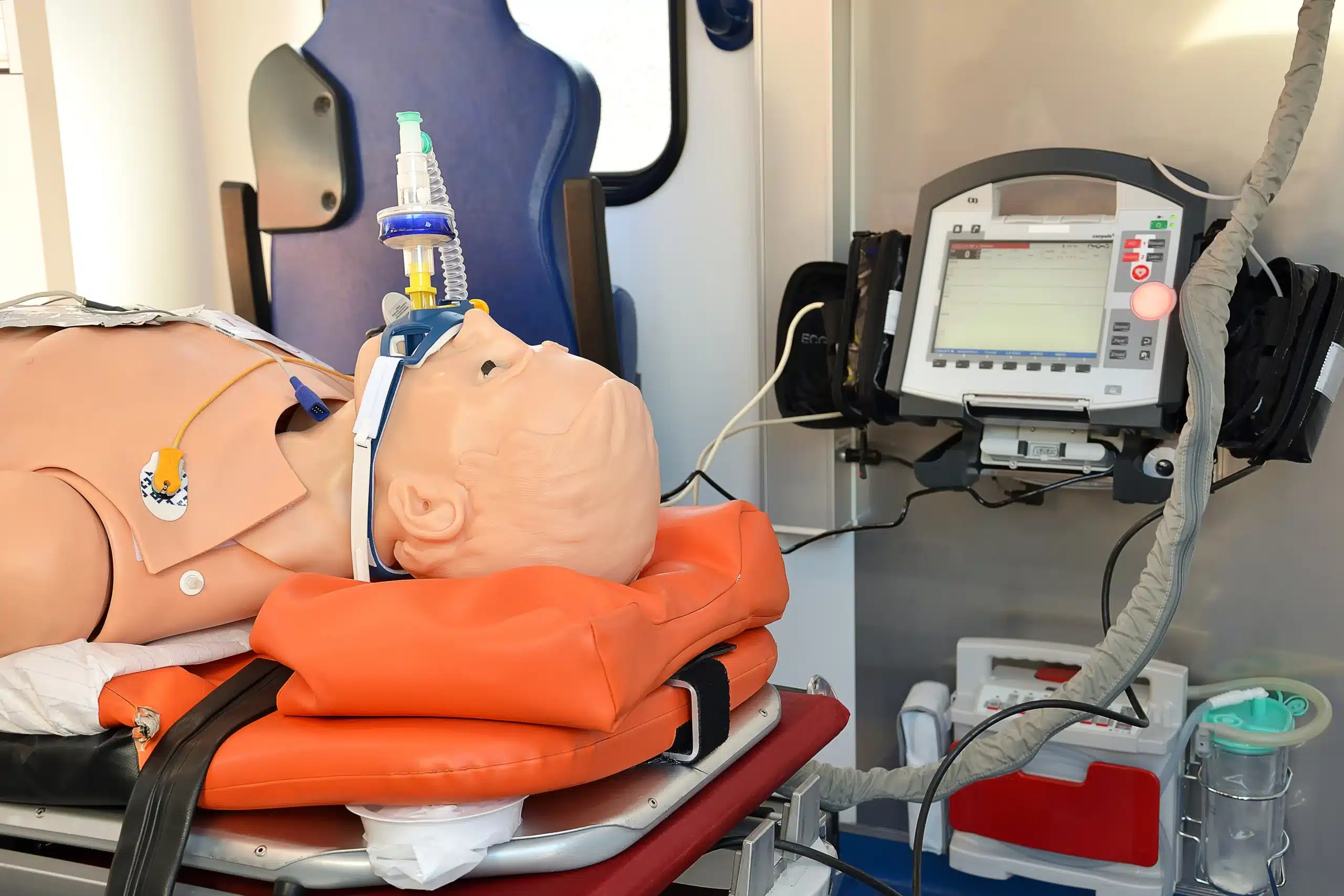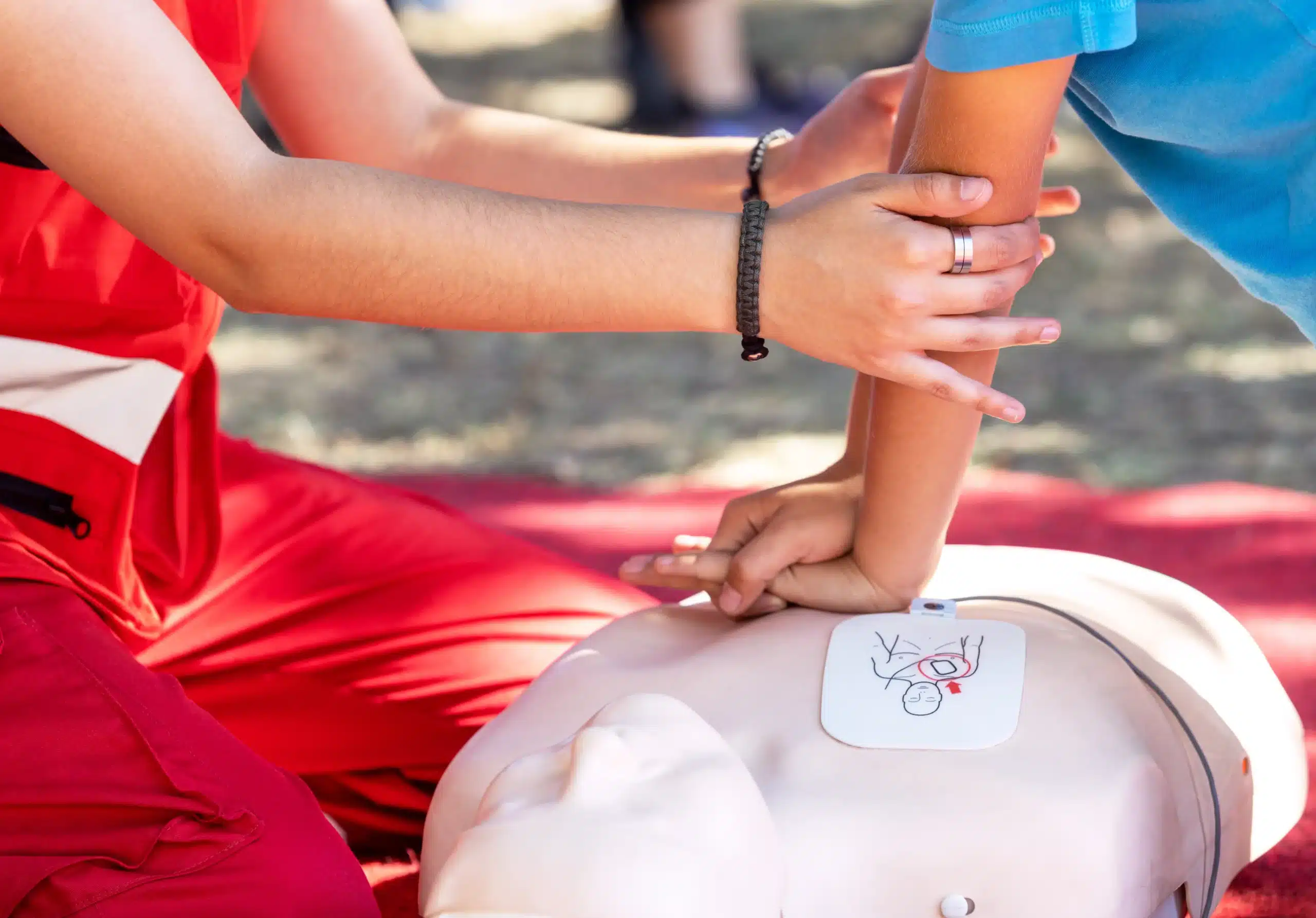Two years. That’s the typical lifespan of a CPR certification. It’s a reminder that staying current with these life-saving skills is an ongoing commitment, not a one-time achievement. If you’re in Tracy, CA, and your CPR certification is approaching its expiration date, you’re in the right place. This guide will walk you through the process of CPR renewal in Tracy, covering everything from the different types of courses available to what to expect during the renewal process. We’ll also address common misconceptions and provide valuable resources to help you stay prepared for any emergency.
Key Takeaways
- Stay current with the latest life-saving techniques: Regular CPR renewal ensures you’re prepared for emergencies with the most up-to-date skills and knowledge.
- Find a course that fits your lifestyle: Choose from various CPR renewal options, including blended learning and in-person classes, to accommodate your schedule and learning preferences.
- Tracy CPR Classes supports your certification journey: They offer a range of AHA-certified courses, competitive pricing, and convenient locations in Tracy, serving Stockton and Lodi, to help you maintain your life-saving skills.
What is CPR Renewal in Tracy?
CPR renewal in Tracy simply means updating your CPR certification to stay current with the latest guidelines and best practices. CPR certifications are typically valid for two years. After that, you’ll need to renew to maintain your skills and knowledge. This usually involves a combination of online learning and in-person skills practice. You can find a local class that fits your schedule.
The American Heart Association’s Resuscitation Quality Improvement ([RQI] program)(https://tracycprclasses.com/rqi-classes/) is a common choice for healthcare professionals looking for BLS, ACLS, and PALS renewal. This program emphasizes the importance of staying sharp and ready to respond effectively in an emergency.
It’s best to renew within 30 days of your certification expiring to avoid retaking the entire course. Staying certified ensures you’re equipped with the most current techniques and knowledge to handle emergencies confidently.
CPR Renewal Courses: What’s Available?
Renewing your CPR certification is easy and convenient, thanks to the variety of courses available in Tracy, CA. Whether you’re a healthcare professional, childcare provider, or simply want to maintain your life-saving skills, there’s a course that fits your needs. Let’s explore some of the most popular options.
American Heart Association (AHA) Courses
The American Heart Association (AHA) sets the standard for CPR and emergency cardiovascular care. Tracy offers a range of AHA-certified courses, covering everything from basic CPR and First Aid to advanced life support. These courses ensure you receive high-quality training that meets national guidelines, providing a strong foundation for responding effectively in emergencies.
BLS Renewal
If you’re a healthcare provider or work in a medical setting, renewing your Basic Life Support (BLS) certification is essential. BLS renewal courses in Tracy combine online learning with in-person skills testing. This blended format offers flexibility, allowing you to study the material at your own pace before demonstrating your skills to a certified instructor. Tracy CPR Classes offers these convenient BLS courses daily.
ACLS Renewal
Advanced Cardiovascular Life Support (ACLS) renewal is crucial for healthcare professionals who manage cardiovascular emergencies. ACLS courses in Tracy provide the knowledge and skills needed to handle complex situations, from cardiac arrest to stroke. Safety Training Seminars offers conveniently located AHA-certified ACLS training near surrounding cities like Livermore and Modesto.
PALS Renewal
Pediatric Advanced Life Support (PALS) focuses on the specialized care of infants and children. For healthcare providers working with younger patients, maintaining a current PALS certification is vital. The AHA’s Resuscitation Quality Improvement (RQI) program offers a streamlined approach to PALS renewal, emphasizing hands-on practice and immediate feedback. This innovative program helps medical professionals maintain their skills and confidence in pediatric emergencies. You can explore more information about RQI and other PALS courses on the Tracy CPR Classes website.
Renew Your CPR Certification: What to Expect
Renewing your CPR certification is a straightforward process designed to refresh your life-saving skills. Here’s a step-by-step guide to what you can expect:
Check Your Eligibility & Prepare
Before signing up for a renewal course, ensure your current certification is still valid or hasn’t been expired for too long. Most organizations, including the American Heart Association, allow for a grace period after expiration. Check with your certifying body or a training center like Tracy CPR Classes for specific guidelines. Once you’ve confirmed your eligibility, gather any necessary documentation, such as your current CPR card, to streamline the registration process. Consider your learning style and schedule as you choose between a blended learning course (online learning combined with in-person skills practice) or a traditional classroom renewal.
Learn Online
Many CPR renewal courses now offer a convenient online learning component covering the latest CPR guidelines, techniques, and protocols. These online modules allow you to learn at your own pace, reviewing material as needed. This flexible approach is perfect for busy professionals, parents, and anyone juggling multiple commitments. The online portion usually takes between one and two hours to complete. Tracy CPR Classes offers BLS CPR renewal courses with this blended learning format.
Complete Your Skills Assessment
After completing the online coursework, you’ll participate in an in-person skills assessment. This session allows you to demonstrate your CPR techniques on a manikin under the guidance of a certified instructor. Instructors provide feedback, answer questions, and ensure you’re comfortable performing CPR in real-life scenarios. Some training centers utilize voice-activated manikins for a more interactive and self-directed experience, with instructors available for support. You can often find more information about a training center’s process on their website, like Bay Area CPR’s CPR classes page.
Get Certified
Once you successfully complete the skills assessment, you’ll receive your updated CPR certification card, valid for two years. This card is proof of your renewed qualifications. At Tracy CPR Classes, your AHA certification card is issued the same day as your skills test, so you leave the class ready to respond to emergencies.
CPR Renewal: Cost & Frequency
Typical Costs in Tracy
CPR renewal costs in Tracy, CA vary depending on the provider and the specific course. At Tracy CPR Classes, our BLS renewal is $120, which includes the online portion, the skills test, and your certification card. We’re committed to competitive pricing and believe we have some of the lowest prices in Northern California. We even offer a price-match guarantee, so you can feel confident you’re getting a great value.
What Affects Course Pricing?
Several factors can influence CPR course pricing. The type of course (BLS, ACLS, PALS, etc.) plays a significant role, as more advanced courses typically have a higher price. Including online learning materials, skills testing sessions, and certification card fees can also affect the overall cost. At Tracy CPR Classes, we aim for transparent pricing and strive to keep our courses affordable. We’re proud to offer a low-price guarantee in San Joaquin County.
How Often Should You Renew?
The American Heart Association recommends renewing your CPR certification every two years. It’s important to stay current with the latest CPR guidelines and techniques. If your certification lapses, you’ll need to take a full recertification course. While some organizations may require more frequent renewal, such as annually, adhering to the two-year standard ensures you maintain a nationally recognized level of CPR competency. For more information on CPR renewal guidelines, visit the American Heart Association website.
Why Renew Your CPR Certification Regularly?
CPR isn’t a skill you learn once and forget. Regular renewal is essential for several important reasons. It keeps your skills sharp, ensures you’re using the most effective techniques, and can even boost your confidence in a crisis.
Stay Up-to-Date on Techniques
CPR guidelines and best practices evolve with ongoing medical research. Renewing your CPR certification ensures you’re using the latest, most effective techniques. Since CPR skills can decline over time, regular refreshers are crucial, as highlighted by CPR Certification San Antonio. Staying current with these updates could significantly impact the outcome of an emergency.
Build Confidence in Emergencies
Knowing you have the most up-to-date skills can make all the difference when faced with a real-life emergency. High-quality CPR training builds confidence and equips you to respond quickly and effectively under pressure. A current certification also demonstrates your commitment to maintaining these vital skills. This preparedness can empower you to act decisively when every second counts.
Meet Professional Standards
Many professions require current CPR certification. Regular CPR renewal demonstrates your commitment to meeting these standards and providing the highest level of care. The two-year validity period ensures professionals stay updated on CPR practices, contributing to a culture of preparedness, as discussed in the AHA Journals. By staying current with your certification, you contribute to a safer environment for everyone.
Where to Renew Your CPR in Tracy
Finding the right CPR renewal course in Tracy is easier than you think. Several reputable providers offer various certification levels, catering to diverse needs and schedules. Here’s a rundown of where you can renew your CPR certification:
Tracy CPR Classes
Tracy CPR Classes offers a comprehensive range of American Heart Association (AHA) courses, including CPR and first-aid certification. Their focus on high-quality training and excellent customer service makes them a popular choice for renewals. Visit the Tracy CPR Classes website for more information.
Safety Training Seminars
Located in Tracy, Safety Training Seminars provides AHA-certified classes in CPR, BLS, ACLS, PALS, and First Aid. Their central location is convenient for those living and working in the area. Learn more about their courses and schedule on the Safety Training Seminars website.
Bay Area CPR
Bay Area CPR offers a variety of AHA-certified CPR, BLS, ACLS, and PALS classes in Tracy. With daily classes and options like CPR & First Aid and EMSA courses, they offer flexibility for busy schedules. Bay Area CPR’s website has details on class schedules and registration.
Local Hospitals & Medical Centers
Many hospitals and medical centers in and around Tracy offer CPR renewal courses, often geared toward healthcare providers. These courses typically provide high-quality training and refreshers to help professionals respond effectively in medical emergencies. Contact your local hospital or medical center directly for information on their CPR renewal programs. For more insight into the importance of CPR training, check out resources like this MedTrainer article.
Prepare for Your CPR Renewal Course
Getting ready for your CPR renewal is straightforward. A little prep work goes a long way in ensuring a smooth and successful recertification.
Review Current Guidelines
Before your renewal course, take some time to review current American Heart Association (AHA) guidelines. CPR certifications are typically valid for two years. It’s best to renew within 30 days of the expiration date to avoid retaking the entire course. For the most up-to-date information on CPR performance and training, visit the AHA website for resources and guidelines. Consider whether a blended learning course, with online study and in-person skills practice, works for you, or if you prefer a traditional classroom setting. Tracy CPR Classes offers various course formats to fit your schedule.
Practice CPR Techniques
Even if you haven’t used CPR since your last certification, refreshing your skills is key. Practicing techniques like chest compressions, rescue breaths, and using an AED builds confidence for real emergencies. High-quality CPR training emphasizes the importance of quick, effective action. Regular practice reinforces these life-saving skills. Think of it like any other skill—the more you practice, the better prepared you’ll be when it matters most. You can find helpful resources and refreshers on the Cascade Training website.
Gather Required Documents
Have your previous CPR certification card ready for verification during the renewal process. Tracy CPR Classes typically issues new AHA certification cards on the day of the skills test. Our BLS CPR renewal course usually involves about one to two hours of online learning and 40 to 60 minutes of in-person skills testing, so plan accordingly. Make sure you have everything you need before heading to class.
CPR Renewal: Common Misconceptions
It’s easy to get confused about CPR renewal, especially when your certification is close to expiring. Let’s clear up a few common misconceptions.
Renewal vs. Initial Certification
One misconception is that you need prior certification before taking a renewal course. While formal training is the best way to learn proper techniques, anyone can learn CPR. If you’ve never taken a CPR class, don’t let that hold you back. You can jump right in with a CPR certification course. At Tracy CPR Classes, we offer a variety of courses for all levels.
Online-Only Courses
Another misconception surrounds online-only CPR training. While online learning is convenient for studying the material at your own pace, it typically only covers the knowledge portion of CPR. To receive your official American Heart Association certification card, you’ll need a hands-on skills assessment with an AHA Instructor. Our blended learning courses combine online learning with the essential in-person skills session.
Why Regular Practice Matters
CPR guidelines and best practices change periodically. Renewing your CPR certification every two years ensures you’re current on the latest life-saving techniques. Regular practice is also essential. Even if you’ve performed CPR before, refreshing your skills through renewal courses helps you stay sharp and confident during emergencies. Consistent review reinforces best practices and helps you react effectively under pressure. Tracy CPR Classes offers several refresher courses to help you maintain your skills between renewals.
Maintain Your CPR Skills
Keeping your CPR skills sharp isn’t just about checking a box every two years; it’s about being prepared to potentially save a life. Here’s how to stay on top of your training:
Practice Regularly
Regular practice is key to maintaining muscle memory and confidence in your CPR abilities. Think of it like any other skill—the more you use it, the better you become. Set aside time each month to review the steps, even if it’s just mentally running through the process. Consider practicing on a CPR manikin if you have access to one. This hands-on practice can make a significant difference when faced with a real emergency. High-quality CPR training emphasizes this regular practice to ensure you can act quickly and confidently in medical emergencies.
Use Online Resources
The internet offers a wealth of resources to help you stay current with CPR techniques and guidelines. Many websites provide videos, interactive tutorials, and downloadable guides that you can review at your convenience. These online resources can supplement your in-person training and provide valuable refreshers between certification renewals. You can even find practice tests and quizzes to assess your knowledge and identify areas for improvement.
Take Refresher Courses
Even if your certification isn’t due for renewal yet, consider taking a refresher course. These shorter courses can reinforce your skills and introduce you to any updated guidelines. The Red Cross offers various refresher courses, including blended learning options that combine online study with in-person skills sessions. This flexibility allows you to fit the training into your busy schedule and maintain your proficiency without a significant time commitment. Plus, revisiting the material regularly can boost your confidence and reduce anxiety should you ever need to perform CPR in a real-life situation.
Choose the Right CPR Renewal Course
Renewing your CPR certification is an important step in maintaining your life-saving skills. But with different courses, formats, and providers available, how do you choose the right one? Here’s a breakdown to help you decide.
Consider Your Career Needs
Your profession plays a big role in determining the right CPR renewal course. Healthcare providers, like doctors and nurses, need to maintain up-to-date skills and knowledge to respond effectively in emergencies. As MedTrainer explains, CPR training for healthcare professionals is crucial for saving lives. If you work in healthcare, look for a renewal course that aligns with the latest American Heart Association guidelines and covers advanced life support techniques. Tracy CPR Classes offers a range of AHA courses designed specifically for healthcare professionals, including BLS, ACLS, and PALS renewal. Even if you’re not a medical professional, understanding CPR is a valuable skill. Parents, teachers, coaches, and childcare providers can all benefit from knowing how to respond in a crisis. Tracy CPR Classes offers the EMSA Child Care Health & Safety course specifically for childcare providers.
Evaluate Course Formats & Schedules
Life gets busy, so finding a course that fits your schedule is essential. Luckily, there are flexible options available. Blended learning courses, which combine online learning with in-person skills sessions, are a popular choice. This format allows you to study the material at your own pace and then demonstrate your skills in a hands-on setting. The Red Cross highlights the benefits of blended learning for CPR renewal, offering a convenient way to balance your training with other commitments. Consider your learning style and availability when choosing between a traditional classroom setting and a blended learning approach.
Compare Providers & Certifications
Not all CPR certifications are created equal. The American Heart Association (AHA) is a widely recognized and respected organization that sets the standard for CPR training. Cascade Training emphasizes the importance of choosing a CPR course from a reputable provider like the AHA. When comparing providers, look for an AHA Training Center like Tracy CPR Classes, which offers certification cards valid for two years. This two-year validity ensures your skills are current and aligns with industry best practices, as explained by CPR Certification Colorado Springs. Tracy CPR Classes is a woman-owned AHA Training Center, providing high-quality instruction and AHA certifications. They also offer specialized training programs like RQI programs. For a comprehensive list of CPR resources in your area, check out their Northern CA CPR Directory.
Related Articles
- CPR Training in Tracy, CA: Your Guide – Tracy CPR Classes
- Northern CA CPR Directory – Tracy CPR Classes
- American Heart Association (AHA) Guide for Lodi Residents – Tracy CPR Classes
- Online PALS Classes in Lodi: Your Certification Guide – Tracy CPR Classes
- Find CPR Classes in Stockton: Your Comprehensive Guide – Tracy CPR Classes
Frequently Asked Questions
How long is CPR certification valid for? CPR certifications are typically valid for two years. It’s a good idea to renew within a month of your certification expiring to avoid retaking the entire course.
What’s the difference between CPR renewal and getting certified for the first time? If your certification is current or recently expired, you can take a shorter renewal course. If it’s been a while, or you’ve never been certified, you’ll need to take the full certification course. Either way, you’ll learn the skills and knowledge needed to perform CPR effectively.
Are online-only CPR courses enough to get certified? While online courses are great for learning the material, you’ll also need an in-person skills assessment with a certified instructor to receive your official CPR certification card. Many courses offer a blended learning format that combines online learning with in-person skills practice.
How much does CPR renewal cost in Tracy? Costs vary depending on the provider and the type of course. Basic CPR and first aid renewal courses are generally less expensive than more advanced certifications like BLS, ACLS, or PALS. Check with your chosen provider for their specific pricing. Many providers, like Tracy CPR Classes, offer competitive pricing and even price-matching.
What if I let my CPR certification expire? Can I still renew it? Most organizations allow a grace period after expiration, but if it’s been too long, you might have to retake the full certification course. Check with your certifying organization or training center for their specific guidelines. It’s always best to renew before your certification expires to keep your skills current and avoid any extra steps.

